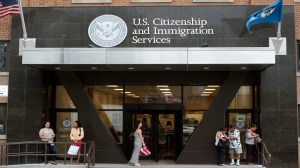Colon cancer has long been considered a disease that affects older adults. But recently, it has come to notice that more and more young people, including millennials and Gen Z, are being diagnosed with this cancer. While age is still a key risk factor, recent research shows that colorectal cancer is increasingly striking people under 50 and often goes undetected until it’s too late.
A major study published in the British Journal of Surgery (BJS) found that people born in 1990 have twice the risk of developing colon cancer compared to those born in 1950. This means that today’s young adults are facing colon cancer risks that were once only seen in their grandparents’ generation.
“This is no longer just a disease of the elderly,” said Dr. Joseph Salhab, a Florida-based gastroenterologist who has raised concerns about the sharp rise in colon cancer cases among people in their 20s, 30s, and early 40s.
According to the American Cancer Society, colorectal cancer is now the leading cause of cancer-related deaths among men under 50, and the second leading cause in women in the same age group. While the reasons for this trend are still being researched, experts believe that diet, sedentary lifestyle, obesity, alcohol use, and the gut microbiome may play a role.
Dr. Salhab explains the importance of early detection and shared five key symptoms that young adults should never ignore:
1. Rectal bleeding
Spotting blood in your stool or on toilet paper is one of the most important warning signs of colon cancer. It may appear as bright red or dark-colored blood. While this could be due to less serious conditions like haemorrhoids, persistent or repeated bleeding requires immediate medical attention.
2. Unexplained abdominal pain
Ongoing stomach pain or cramping that doesn’t go away, even after changes in diet or lifestyle, could signal something more serious. “If you have belly pain that lingers or gets worse without a clear cause, don’t ignore it,” Dr. Salhab warned.
3. Fatigue or weakness
Constant tiredness even after sleeping and resting properly may happen due to anaemia caused by internal bleeding, a possible sign of colon cancer. Young adults often blame fatigue on stress or busy schedules, but long-term exhaustion shouldn’t be dismissed.
4. Changes in bowel habits
Any significant change in your bowel movements, such as ongoing constipation, diarrhoea, or a change in stool consistency, lasting more than a few weeks, could be a red flag. “Pay attention to what your body is telling you,” said Dr. Salhab.
5. Other warning signs
Dr. Salhab also explained that unexplained weight loss, loss of appetite, recurring night sweats, or low-grade fevers may be early indicators of colon cancer, especially when these symptoms appear together.
Hence, colon cancer is no longer just a disease that comes with age. Doctors urge people to take symptoms seriously and seek medical advice early as when caught in time, colon cancer is treatable.








